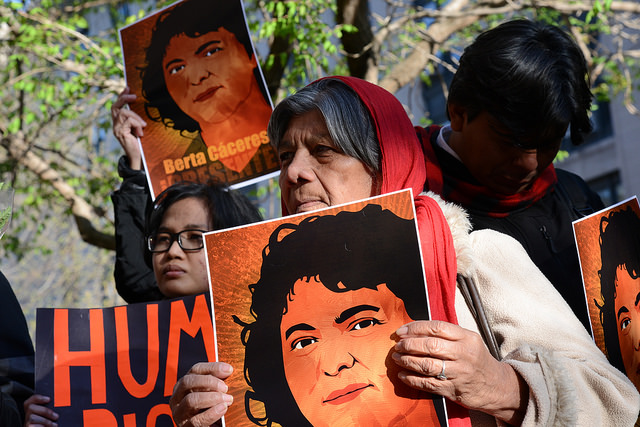Within 48 hours of the coup in Honduras, much has been written about what this means for Latin America, with the best analysis acknowledging that the coup breaks with the democratic constitutional order, but also that Honduran President Manuel Zelaya threatened democracy in his campaign to perpetuate himself in power. Chris Sabatini from the Council of the Americas points out the passivity of multilateral institutions and regional governments in the past few weeks as the situation was brewing, and explains that now the international community is in a situation in which the only right thing to do is to condemn a coup against “a President who had been bent on steamrolling the checks and balances of power.” Kevin Casas-Zamora form the Brookings Institution has a similar take, stating that “While bearing by far the greater responsibility for this crisis, Mr. Zelaya is still the legitimate president of Honduras and must be reinstated in his position.”
Whether Zelaya will be reinstated as president, though, depends mostly on whether Hondurans are prepared to take him back, and while it seems that every foreign government, international organization, and Latin America expert is calling for the democratically elected government to be restored, the will of Hondurans may not match the international community’s intentions. Zelaya left Honduras in conflict with the Supreme Court, the National Congress, and the Armed Forces, and with approval ratings below 30%. The demonstrations that followed the coup in support of Zelaya seem to have been relatively small. If Zelaya does return to Honduras later on this week with OAS Secretary General Insulza, his current plan, it is unclear who would welcome him.
Following the latest developments today I ran into a Twitter feed that summed it all up: “Parece que todo el mundo está ansioso porque regrese Manuel Zelaya al poder…todos, menos los hondureños.” (It seems that the whole world is anxious for Manuel Zelaya to return to power… everyone, but Hondurans.)
I have yet to see a good report on where Hondurans stand on all of this, but what I perceive from my limited personal contacts in the region and a few interviews in the press is that many Hondurans have accepted the coup, reflecting what Latinobarometro and other pollsters have warned us about for a while: that Latin Americans are disillusioned with democracy. The wave of democracy that hit Latin America beginning in the late 1970s has not fulfilled expectations, and as a result many of the region’s citizens are now willing to sacrifice it without much thought. This helps explain the popularity of questionable re-election movements in Bolivia, Colombia, Ecuador, and Venezuela, as well as the coup attempt in Venezuela in 2002 and what we are seeing now in Honduras.
Yes, recognizing Roberto Micheletti as the President of Honduras would set a bad precedent in the region, but perhaps more importantly, this coup should open our eyes to the vulnerability of democracy in the Americas. Just as dangerous as having a world in which coups are accepted by the international community is a world in which populations are so disgruntled with democracy that they accept a coup and an undemocratic government as the best of two evils. While initially it may be important to focus on the international response, my hope is that soon analysts as well as international organizations and governments will begin to think of why this coup took place, about the deficiencies in Latin America’s democracies, and about what should be done about it.

Reply